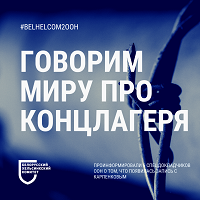
The Belarusian Helsinki Committee and «Viasna» Human Rights Center reached out to the UN Special Rapporteurs with a message that the Belarusian authorities are willing to shift to even more radical measures towards the protesters, which would make the realization of human rights completely impossible.
The UN mechanisms addressed are as follows: Special Rapporteur on the Promotion of Truth, Justice, Reparation and Guarantees of non-Recurrence Mr. Fabián Salvioli, Special Rapporteur on Extrajudicial, Summary or Arbitrary Execution Ms. Agnes Callamard, Special Rapporteur on the Rights to Freedom of Peaceful Assembly and of Association Mr. Clément Nyaletsossi Voule, Special Rapporteur on the Promotion and Protection of the Right to Freedom of Opinion and Expression Ms. Irene Khan, Special Rapporteur on Torture and Other Cruel, Inhuman or Degrading Treatment or Punishment Mr. prof. Nils Melzer, Working Group on Arbitrary Detention, Special Rapporteur on the Situation of Human Rights in Belarus Ms. Anaïs Marin, To the United Nations High Commissioner for Human Rights Ms. Michelle Bachelet of Chile.
The appeal stemmed from the recently published audio recording [2], in which a persons whose voice closely resembles the voice of the current Deputy Minister of Internal Affairs, police colonel Nikolai Karpenkov, informs his subordinates about the plans discussed at a meeting with the de facto Head of State Alexander Lukashenka, to apply more rigid actions to peaceful protesters [3].
Although the authenticity of the recording cannot currently be asserted, a number of facts indicate that it is highly likely to be genuine. In particular, the events that took place in November 2020 (that is, immediately following the meeting with Lukashenka) revealed escalation in violence by the security forces against peaceful protesters.
At the start of the recording, Mr. Karpenkov tells his subordinates about a new weapon that the Belarusian security forces received from the Russian Federation, the "Yarygin Pistol". The Deputy Minister reports on the test of this weapon, which showed its serious terminal performance and injuriousness. In addition, the speaker says that such non-lethal weapons with which a peaceful protester, Alexander Taraikovsky, was killed (quote «He [Taraikovsky] died, of course, from a rubber bullet that flew into his chest») [4].
Furthermore, Mr. Karpenkov points out inadequate use of rubber truncheons, stun grenades, and other means to suppress protests, emphasizing the necessity to use such traumatic weapons.
In addition, the recording touches upon the manner and cases when the security forces should have used weapons. Referring to Lukashenka, Mr. Karpenkov points to the need to «either cripple, or maim, or kill,» and also recommends shooting directly in the forehead so that the person, after the injuries received, could never recover to their initial state.
Speaking about the use of special means, Mr. Karpenkov speaks of the need to use them in a most radical manner. Specifically, the speaker describes the mechanism of the water cannon: «in terms of its technical characteristics, this machine throws 200 liters of water in a second ... to the spot. It blows so hard that if one is nearby or ... in a crowd, he can be literally smeared.» Then the Deputy Minister emphasizes that a water cannon should necessarily be used with gas.
The speaker also mentions the special camps where persons who have repeatedly taken part in protest actions are to be detained indefinitely. Describing the construction of camps, Mr. Karpenkov highlights the need for barbed wire around the perimeter, and several rooms. Those detained should allegedly be subjected to forced labour. According to Mr. Karpenkov, as discussed in the meeting, the protesters should be kept in these camps until the protest movement stops.
It should also be noted that throughout the recording, the view of peaceful protesters as terrorists and bandits can be traced. The speaker emphasizes the de facto use of martial law in the country and the need to apply more radical measures to the protesters.
Human rights defenders see the actions of the authorities and law enforcement agencies as gross violations of human rights. More specifically, the conversation of one of the leaders of the Ministry of Internal Affairs, who relies upon complete freedom of action authorized by the de facto Head of State, shows the authorities' complete disregard for basic personal human rights, such as the right to life, to freedom from torture, to freedom from servitude and forced labor, to liberty and security of person.
In the light of the above, human rights defenders ask the Special Rapporteurs to submit a request to the government of Belarus to take urgent measures to fulfill their international obligations in the field of human rights enshrined in the International Covenant on Civil and Political Rights and other international legal documents, as well as to use necessary and available international legal response to gross violations of human rights in Belarus.
[2] https://www.youtube.com/watch?v=hBHhJgYeYV4
[3] It is unknown when exactly the recording was taken, but the information available suggests that the recording dates from the end of October 2020, as it contains the phrase: "... Kubrakov Ivan Vladimirovich, major general, was appointed the minister, today he was given the lieutenant general shoulder boards" ... The current Minister of Internal Affairs Kubrakov was promoted to the lieutenant general on October 30 last year.
[4] It should be pointed out initially, the authorities denied any involvement in the death of Alexander Taraikovsky, claiming that the death occurred due to Taraikovsky trying to throw an unidentified explosive device at the security forces, where the device detonated in his hands. On 16 August, former Interior Minister Yuri Karaev admitted that Taraikovsky could have been killed with a rubber bullet. Moreover, photo and video footage confirmed that Taraikovsky did not have any weapon in his hands, and that he died after a shot by one of the security officials. However, a criminal case on the death of Taraikovsky has not been initiated in Belarus, and the incident verification was stopped.




